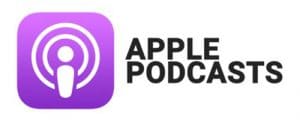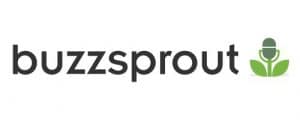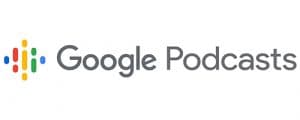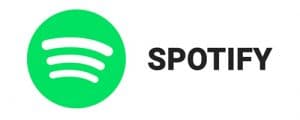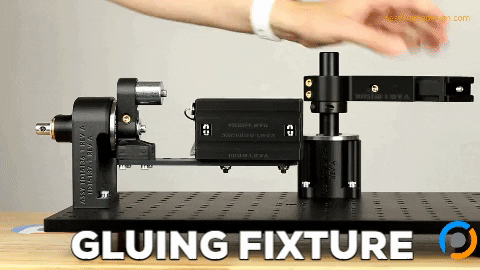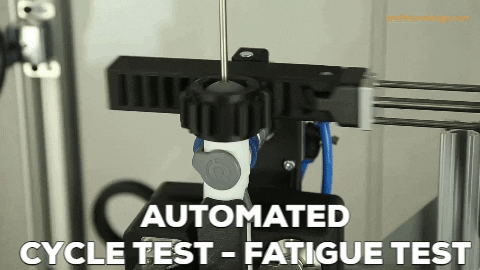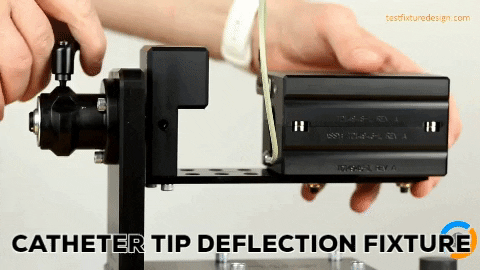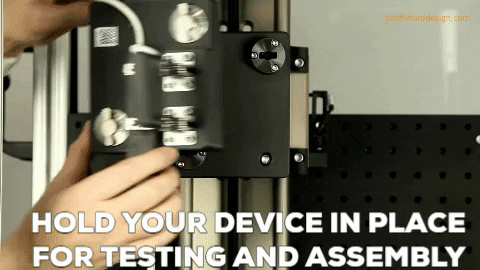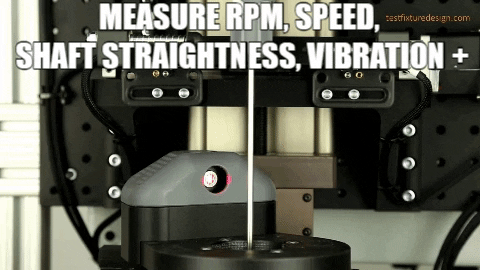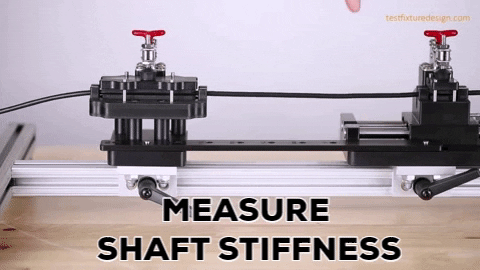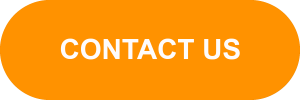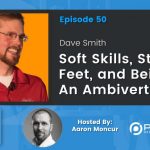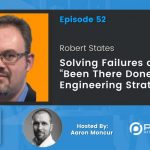John Teel | The Hardware Academy
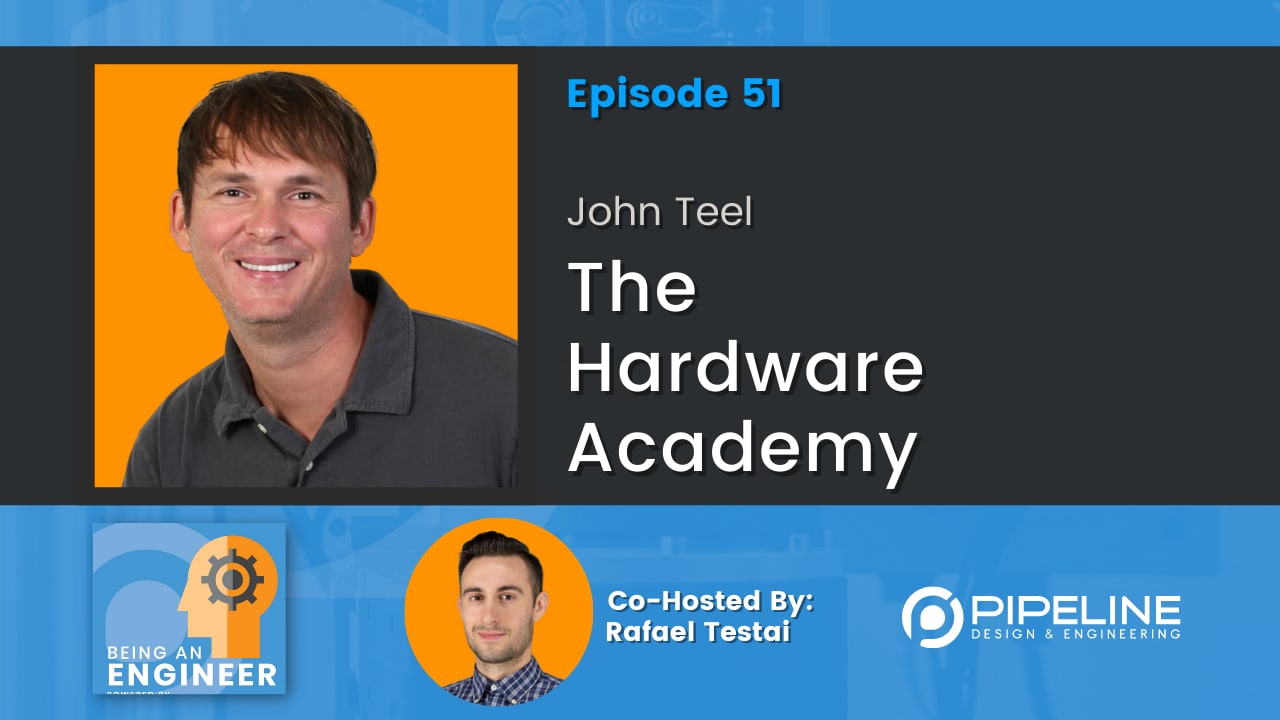
Who is John Teel?
John Teel is an Electronics design engineer and the founder of PredictableDesigns.com. He is helping entrepreneurs, startups, makers, inventors, and small companies develop new electronic hardware products through his Hardware Academy.
John also hosts The Predictable Designs Podcast, which focuses on hardware startups and entrepreneurs who are looking to launch a new electronic hardware product. He talks about how to create, manufacture, market, and sell successful new hardware products.
In addition, he’s also a contributing writer for Makezine.com (Make: Magazine), Entrepreneur.com, and Hackster.io. He’s been a senior microchip design engineer for Texas Instruments (TI) for 15 years and has nearly 30 years of experience designing electronics. He started designing electronics, building robots, and programming computers about the age of 14 and shortly. (Great job John!)
He invented many successful microchips while working for TI, which may now be found in a variety of popular electronic gadgets, including several Apple products.
EXPAND TO VIEW EPISODE TRANSCRIPTION
SUMMARY KEYWORDS
product, engineer, podcast, entrepreneur, marketing, developing, academy, engineering, companies, people, entrepreneurship, design, courses, blog, hardware, electronics, advice, john, episodes, learned
SPEAKERS
John Teel, Presenter, John Teele, Aaron Moncur, Rafael Testai
Presenter 00:00
The being an engineer podcast is a repository for industry knowledge and a tool through which engineers learn about and connect with relevant companies, technologies, people, resources and opportunities. Enjoy the show.
John Teele 00:16
So it’s really a mix and I kind of say it’s where entrepreneurship and engineering intersect is sort of my slogan.
Rafael Testai 00:23
Hello, everyone, welcome to the being an engineer Podcast with your co host, Rafael Testai. Today we have another very special guest, John Teele. John Teele is an electronics design engineer and the founder of predictable designs.com. Don’t worry about the links, they’ll always they’ll be in the show notes. He helps entrepreneurs, startups, makers, inventors and small companies develop new electronic hardware products. He is contributing writer in mckenzie.com. He’s the Make Magazine entrepreneur.com and hackster.io. John was a senior microchip design engineer for Texas Instruments ti for 15 years, and has nearly 30 years of experience designing electronics. He started designing electronics, building robots and programming computers since about the age of 14, and surely thereafter began studying entrepreneurship. He has an MS. E degree, specializing in micro electronics and graduated with honors congratulations. While working for TI he designed many successful microchips, which are now in various popular electronic devices, including several Apple products. He also founded a hardware startup based on consumer lighting product, which sold in hundreds of retail locations in three countries, and fully developed the product and set up manufacturing in Asia. He oversaw marketing, sales, trade shows, logistics, and manage a team of over 20 sale reps. So John, welcome to the show.
John Teele 02:15
Well, thank you. That was quite the introduction. I think you covered everything. I’m not sure there’s much left for me to say.
Rafael Testai 02:21
Amazing. So I wanted to tell our audience, this is going to be a shorter interview than usual, maybe about 1820 minutes. But it’s all about quality and not quantity. I want to introduce you. There’s a specific reason why I have John in the show. He has some really good resources for all of our hardware inventors out there, and small companies. I actually first heard about him on his podcast, the predictable designs podcast link in the show notes, and I listened to over 30 of his episodes in the podcast, I’m going to ask him in today’s podcasts, I’m going to ask him some follow up questions for some info that a learner his podcast. So we’re gonna discuss something that’s a little more advanced than what has already probably been discussed on his podcast, because he’s already covered the basics, like product simplification, crowdfunding, marketing, all that stuff you can listen to on his podcast. But before we talk about the podcast, I wanted to discuss the hardware Academy. So John has a hardware Academy, and I’m gonna ask him two things. Could you define what the hardware Academy is? Actually three, what the hardware game is? Who is it for? And with him? What’s in it for me if I were to join the Academy?
John Teele 03:38
Yeah, sure. So the hardware Academy is specifically for hardware entrepreneurs that are developing an electronic product specifically, although I do have members that are doing more of a mechanical product, but mainly it’s for electronic products. And although a large percentage of the members are engineers are also non engineers, software people, a variety of different, you know, scientists and things like that, that are in there. So it’s generally for anyone that’s developing a product I’d cover being an engineer, I obviously cover a lot of the electronics design and answer a lot of questions about that. But I also do a lot of the other side of the equation, which is marketing, sales, fundraising, all the other things that go into building a successful company. So it’s not entirely just about the product development side. That’s a big emphasis, but I also do, where I do a lot of courses and teaching and also on my blog, I write a lot about marketing in addition to just the engineering side. And if you if I was gonna say as far as what’s inside or what you get, you get access to myself and my experience is not only a microchip designer and working also as freelance designer, where I worked on lots of different products. But you also get access to a lot of other experts that I brought into the academy, either engineers or marketing experts. So that’s a big aspect of it. And then there are lots of courses, where I cover everything from building an online audience and marketing to how to design a custom printed circuit board out a introduction to power supply management, a different technical topic. So it’s really a mix. And I kind of say it’s where entrepreneurship and engineering intersect is sort of my slogan,
Rafael Testai 05:33
love that slogan. Okay, and I was gonna ask you, where can people find out about the Academy? And how much does it cost? I’m sure,
John Teele 05:41
yeah, you can go to the hardware academy.com, my main website, where my blog and all my content is predictable designs.com. But I have the academy set up on a different, a different domain. And the cost varies, there’s several plans, the starter plan cost $49 a month. And for that, you get access to all the courses, you get access to the community, you can ask questions. But what you don’t get as you don’t get any private consulting or communication with me, beyond just a typical customer service type of things. And then there’s a like a pro plan, that’s 99 a month. And with that, you get a private area where you can just discuss your project. And we can discuss strategy, and everything. And that is confidential. And then there’s a third tier, which is a premium tier, which is 199 a month, although that’s increasing, actually tomorrow to 249 a month. But yeah, and get, you get everything in the other plans, plus you get a private engineering area. So you can communicate with several engineers that work for me to discuss your project and get technical assistance.
Rafael Testai 06:54
So many follow up questions from this. So if I understand correctly, this is a hardware company, maybe optimal for a solopreneur or a small company, somebody that’s trying to build the product themselves, maybe develop their first prototype, and you have resources to help them get there, right?
John Teele 07:15
Yes, absolutely. There. It’s generally entrepreneurs, small startups, you know, there are startups with that have a small team of two to three co founders. And then also I do help small companies that are maybe more established, but they’ve never brought their own product to market, maybe they’ve had an E commerce site or something like that. So it’s sort of a combination, but it’s very much focused on entrepreneurs and startups, typically developing their first product, I do have, you know, quite a few members that have developed prior products, but in general, it’s it’s targeted it, those that are developing the first product. And I’ve just from my own experience of developing that product and bringing it to market, I did a lot of things wrong, I did quite a bit, right. And my goal is to share what I’ve learned with other people and prevent them from making some of the really common mistakes that I see new entrepreneurs make
Rafael Testai 08:11
it sure this sounds like you did quite a bit right from reading your bio here. So I think you’re more than qualified to give people advice. Always pay attention to that, like who’s given me the advice, what have they done? So you certainly you’re qualified to give advice?
John Teele 08:25
Yeah, I’m kind of a most engineers tend to not like marketing and have don’t have a lot of positive things to say about marketing. But I, early on even working at TI you know, I learned pretty quickly that marketing without marketing, I don’t have a job as an engineer. And then once I moved to the online world and my own product, especially, I realized that you don’t know if you want to sort of get away from working for someone else or just doing client work, then you really need to, to learn and embrace marketing as well.
Rafael Testai 09:00
So more about the wisdom, what’s in it for me. So if I were to join the Academy, I want to make the value proposition crystal clear. I can not only get classes as to how to develop different things from my product, maybe could you mention some of your most popular classes, maybe four or five?
John Teele 09:19
Yeah, I have several courses on designing a custom microcontroller PCB that would maybe be a suit, there’s not really super, if you’re like an engineer that’s been developing electronics for 30 years, then you probably the technical courses may be a little bit on the more basic side for you. Then you can learn from all the other topics, which is the marketing, selling fundraising, there’s a course that’s like a, I call it a roadmap course where I sort of walk you from idea all the way through prototype, scaling up manufacturing, and actually having the part the product mass manufactured. So that’s it kind of the the two sides of the coin that that I really focus on is the the technical side and the more entrepreneurial side.
Rafael Testai 10:07
So I’ve actually done instructional design for Arizona State University, I helped in that aspect. So I made that means making classes online. What kind of content to use isn’t primarily video for your courses tagged? Yes,
John Teele 10:21
yes, it’s all video. Okay, wonderful. And one of the latest course that we have is, I’m really proud of this course, although I didn’t teach it. I have another engineer that two engineers and electrical engineering and mechanical engineer that taught this course but it’s a, it’s a multi series course, where we go through the entire product development for one specific product. So we start with development boards, then it migrates to designing the schematic circuit diagram and designing a custom PCB layout. And then the last part of it covers the mechanical, the enclosure designed for the product.
Rafael Testai 10:58
So you have the entrepreneurial bug. And I wanted to ask you, I can almost answer this question myself. But I want to know what more there is to it. I want to understand what made you want to start the hardware Academy? And I think the answer is going to be you just did nobody else did it? And that’s what you went for, right?
John Teel 11:15
Yeah, pretty much. I just had so many people coming to me, either through my blog asking me questions, and I just didn’t have the bandwidth to answer them all. And then I’ve had so many people come to me and tell me that they’ve never been able to find any other content that really merges the there’s engineering websites, and there’s entrepreneur websites, but no one really merges the two together. And so that’s, that’s kind of one of my, I guess, the, the what makes my platform special compared to what else is offered out there.
Rafael Testai 11:50
The next one is about specialization. I’ve had another guest on the show, Philippe Villita, if I pronounced that correctly, maybe many episodes ago, a couple of months ago. And he mentioned that he was a little disappointed in his career when he came to the realization that we can’t be the best at everything, we have to pick a specialization, otherwise, we become average or not even good enough to be average. And you mentioned that you do all these things, not only engineering, we also do electrical marketing, sales, crowdfunding, how do you manage to be good at everything?
John Teele 12:24
Yeah, well, I started off going very specialized, I was specifically an analog IC designer. So that was, that was my focus at TI for 10 years. But I’ve always been, like, when I’d have job performance reviews, that one of the main feedback, I always, always get that I’m very adaptable. And I can pretty much jump on any new topic and find some interest in it and become really passionate about that topic. So I’m interested in so many things, from wildlife biology, to theoretical physics, to product design, engineering. So I, you know, I may not be the necessarily the best in any of those, because there is a lot to know, but I kind of like the getting to, to do different things and not just be hyper focused on one specific area, which is what I get for 10 to 15 years of my career,
Rafael Testai 13:20
I can really relate to what you’re saying, because I think I’m the same way I like, I like the sales. I like the marketing, I make videos on YouTube, as many of you already may know. So what advice could you have someone for me in my career, if I like to do the CAD, the SolidWorks. And all that you mentioned?
John Teele 13:37
Well, you could become an entrepreneur, which I know you have some background in that. So you and I are are similar in that regard, I guess that would be you could be an entrepreneur or even if you do freelance work, then you get to see a wide variety of types of projects. And you have to be a little more of a generalist instead of a specialist, which is where I started after I left TI was also doing some freelance client based work, which is also where you’d I learned quite a bit from during that process for a few years.
Rafael Testai 14:11
I’ve heard about the term intrapreneur which is like being an entrepreneur inside a company. Have you heard that term? Yes, I have. I’m thinking about leaning towards in that direction. But anyways, switching back to you. How did you decide to focus on helping entrepreneurs develop new and like new electronic products?
John Teele 14:33
Well, it just kind of made sense for me because I’ve had a passion for entrepreneurship and electronics ever since I was really young, although that passion for electronics came earlier. But you know, I remember being young and going to the library and getting books on you know, corporate structure and how to start a corporation I had a name picked out I didn’t know what I was gonna do, but so I kind of it was just a natural progression for me to merge those two And then by going through the process of developing my own product, getting it in mass manufactured sold in hundreds of retail stores, there is so much that I learned from that process. So after I was beyond that and doing other things, it just made the most sense to me, to help other people with based on what I learned, and it just was a perfect combination that I like engineering, but I also like entrepreneurship. So I went that route of focusing on those two. So it’s just sort of my background led me to that. But also, I saw that there is a need for that, because usually you don’t see engineering and marketing. They don’t use a lot of times they don’t mix very well.
Rafael Testai 15:45
Well, so I’m gonna take a quick break to remind our listeners that being an engineer podcast is brought to you by pipeline design and engineering, pipeline partners with medical device and other engineering teams who need turnkey equipment, such as cycle test machines, custom test fixtures, automation, equipment, assembly jigs, inspection stations, and more. You can find more us on the web on Team pipeline that us. So back to speaking with John here, he also has a very big podcast, and I wanted to ask him if he could give us here at the being an engineer show some advice. We have over 100 episodes, we can see our listenership is growing. But we only have 27 reviews so far on Apple podcasts, any advice so that we can incentivize? Maybe some of our listeners to leave us some reviews?
John Teele 16:37
Well, for starters, you have more episodes than I do. So I think you have more experience with the podcast world than I do. But ultimately, it’s a it’s about building an audience. I think that’s about the most important thing you can do from an online business perspective. So I’ve well, before years before I started my podcast I’ve been creating, I’ve been writing a blog, where every single week I put out really in depth post. Some of those are purely technical, some of them are purely entrepreneurial. And then there’s a combination. So by the time I had my podcast and started that I already had a pretty good sized following, I think I had already started the academy at that point. And the beauty of the category that I have found is it gives me long term relationships with hundreds of people that I get to communicate with. So it’s not just a one way where they read my blog. And you know, I never hear from them. So I’ve gotten to really know a lot of the people really close develop really good relationships. And I think that’s probably been the most helpful for me getting any traction that I that I have with the podcast. But like I said, You’ve got about three times more episodes than I do so.
Rafael Testai 17:53
So where can our listeners find your blog
John Teele 17:57
at predictable designs.com. And then just slash blog or slash podcast? Slash tech is where I’ve kind of split off my technical articles away from more of the entrepreneur articles. So the blog tends to be more general and focusing on the bigger picture of product development and entrepreneurship, whereas the technical section is more you know how to design with an STM 32 microcontroller, that type of those types of articles.
Rafael Testai 18:29
Perfect. Well, I think that we covered the main things that wanted to discuss with our listeners, I wanted to make them aware that there’s a wonderful resource that you created. And we have a lot of inventors and solopreneurs and small companies listen to this podcast. Is there anything that we haven’t discussed that I should ask you?
John Teele 18:49
And now I think I think we, you know, 20 minutes, I think we covered quite a bit and hit on a lot of the big topics that I would like to talk about. And I guess the main final piece of advice that I would offer that I see engineers, especially more than other people do that are wanting to go the entrepreneur route, especially as a product is they tend to hyper focus on the product itself. They’ll spend years developing a product inventors also are notoriously this way as well, where they focus years on the product, getting a prototype getting a patent, spend 10s of you know, $10,000 or more on a patent. And then once they get through all that, then they start worrying about trying to market it and sell it they’ve never talked to a potential customer up to that point. And I think that’s overall the probably the biggest mistake that I see engineers specifically make that that tried to go the entrepreneur route in regards to a hardware product.
Rafael Testai 19:51
I feel like that’s golden advice, which I’ve heard you say in your podcasts many times before. That’s almost like entrepreneurship one on one. Talk to your customers. So before you develop the product to see if there’s a real need in the market, right?
John Teele 20:03
Yeah, absolutely. And I think, you know, from my experience working at big companies, they don’t just typically, I mean, there are exceptions, but they they get, you know, they have people that are out talking to customers, and they know what the market wants. And it’s, it’s easy to make a lot of assumptions, what you think people want, but from my experience, usually those assumptions are wrong. And there’s a lot of them that are right, but about half of them are wrong, and you need to test those assumptions as soon as possible.
Rafael Testai 20:35
Well, so Well, John, thank you so much for being on the podcast.
John Teele 20:38
Oh, no problem at all. Happy to do it.
Rafael Testai 20:40
Do your value listener, we currently ask that you help us get to 105 Star podcast reviews in the platform of your choice. For a chance to win a $50 amazon gift card? Send a screenshot of your five star podcast review to podcast at Team pipeline.us. You will find that email address in the description of the show notes.
Aaron Moncur 21:04
I’m Aaron Moncur, founder of pipeline design and engineering. If you liked what you heard today, please share the episode. To learn how your team can leverage our team’s expertise developing turnkey equipment, custom fixtures and automated machines and with product design, visit us at Teampipeline.us. Thanks for listening.
About Being An Engineer
The Being An Engineer podcast is brought to you by Pipeline Design & Engineering. Pipeline partners with medical & other device engineering teams who need turnkey equipment such as cycle test machines, custom test fixtures, automation equipment, assembly jigs, inspection stations and more. You can find us on the web at www.teampipeline.us.
***
Valued listener, we need your help getting to 100 podcast reviews. Win a $50 Amazon Gift card if you leave us a review on the Apple Podcasts. Simply email a screenshot of your 5-star review to Podcast@teampipeline.us, the email will be in the show notes. We will announce 5 lucky winners at the end of the first quarter in 2022.
You’ve read this far! Therefore, it’s time to turn your headphones up and listen now to this episode to learn all these. Above all, don’t forget to tell your friends who might like this too!

